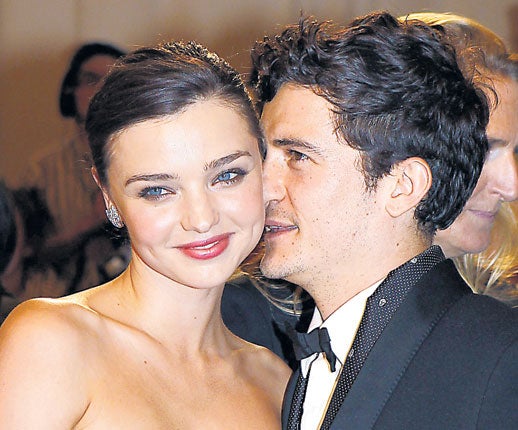Noni juice – a top model's health tipple that may just be toxic

Your support helps us to tell the story
From reproductive rights to climate change to Big Tech, The Independent is on the ground when the story is developing. Whether it's investigating the financials of Elon Musk's pro-Trump PAC or producing our latest documentary, 'The A Word', which shines a light on the American women fighting for reproductive rights, we know how important it is to parse out the facts from the messaging.
At such a critical moment in US history, we need reporters on the ground. Your donation allows us to keep sending journalists to speak to both sides of the story.
The Independent is trusted by Americans across the entire political spectrum. And unlike many other quality news outlets, we choose not to lock Americans out of our reporting and analysis with paywalls. We believe quality journalism should be available to everyone, paid for by those who can afford it.
Your support makes all the difference.Victoria's Secret model Miranda Kerr has revealed that the secret to her youthful looks and flawless skin is a little-known Polynesian berry that is said to "heal the body, mind and spirit". Whether the fruit really does boost energy, revitalise the drinker or relieve stress is so far unknown, but the Australian beauty said she cannot live without it.
The 28-year-old Ms Kerr, wife to Orlando Bloom and mother to the couple's first child, Flynn, born earlier this year, said she relies on Tahitian Noni juice, a drink made from the fruit of the Morinda citrifolia tree found mainly in the South Pacific, Australia and Southeast Asia, to keep her feeling fresh.
In an interview with Australia's Cosmopolitan magazine, Ms Kerr said: "I've been drinking it since I was 14, and when I've got a long day ahead of me, it's the one thing I can't live without."
Manufacturers claim the £25-a-litre Noni juice "supports" the "immune system, delivers superior antioxidants, increases energy, and allows greater physical performance levels". It takes about 20 pounds of Noni fruit to end up with one pound of the drink and can be manufactured in a number of ways.
Some take the whole fruit, without bark or leaves, wash it and then age, or ferment, the fruit product for a couple of months. The fruit is then cold-pressed, which extracts juice.
But with certain brands banned in sports and claims of links to liver disease, the ripe berry drink remains a topic of contentious scientific debate.
Some Noni products are banned for use by athletes because certain ingredients appear on the world's anti-doping banned substances list.
Sold in Britain in pulp, powder and capsule form, there has been little scientific endorsement of its supposed health benefits.
In 2005, two publications linked the ingestion of Noni juice with acute hepatitis. One study suggested the toxin anthraquinones was in the roots, leaves and fruit of Noni fruit.
While the European Food Safety Authority concluded there was no "convincing evidence" of a "causal relationship" between the juice and the disease when it reviewed its safety in 2006, a spokeswoman said at higher intake levels the potential of toxicity was unknown.
Yet like the Amazonian Acai berries before it, the Noni pulp has become something of a craze. Eaten only for survival in the wild, the Noni plant emits an unpleasant odour that helps deter pests and is attractive only to fruit bats. The plants, which can grow up to a height of 10 feet, produce flowers that turn into yellow berries when they mature.
Join our commenting forum
Join thought-provoking conversations, follow other Independent readers and see their replies
Comments